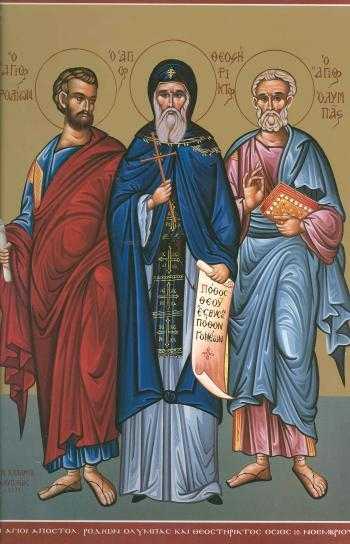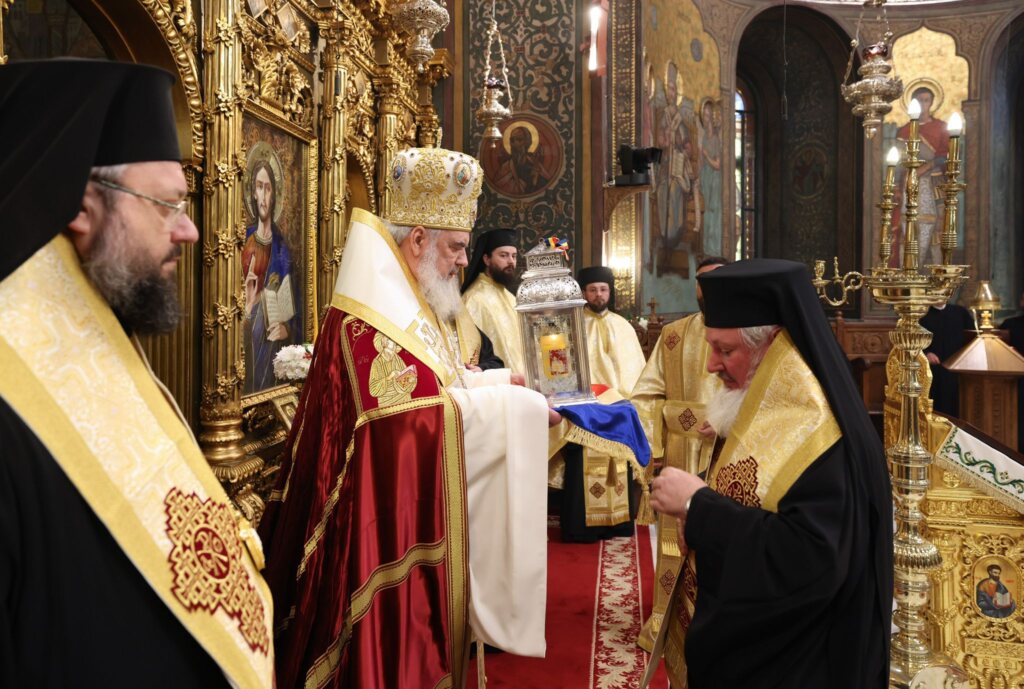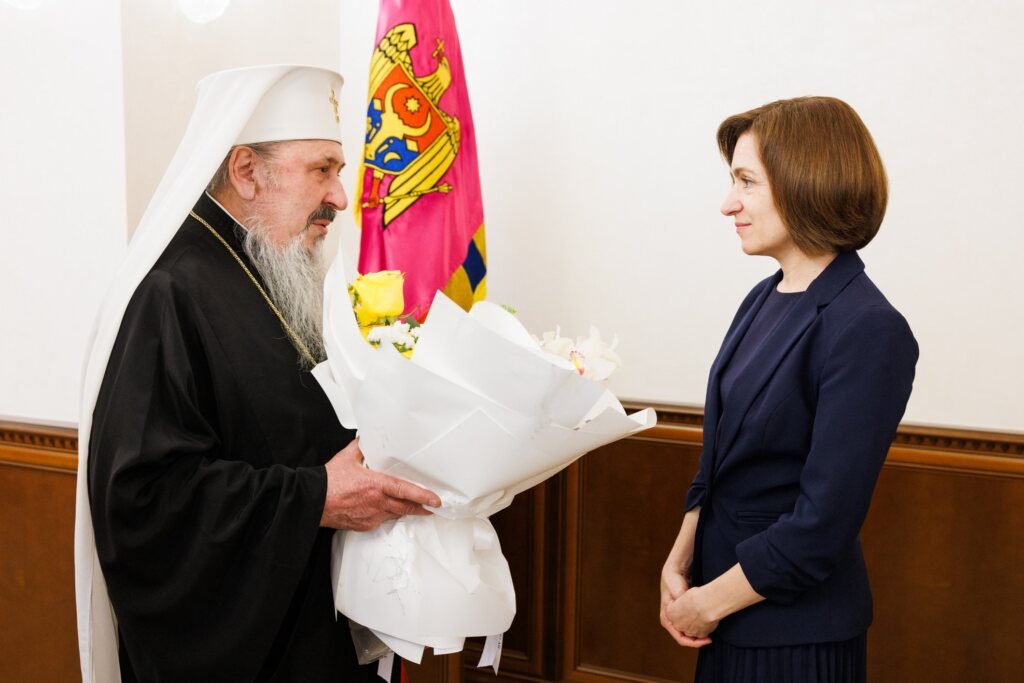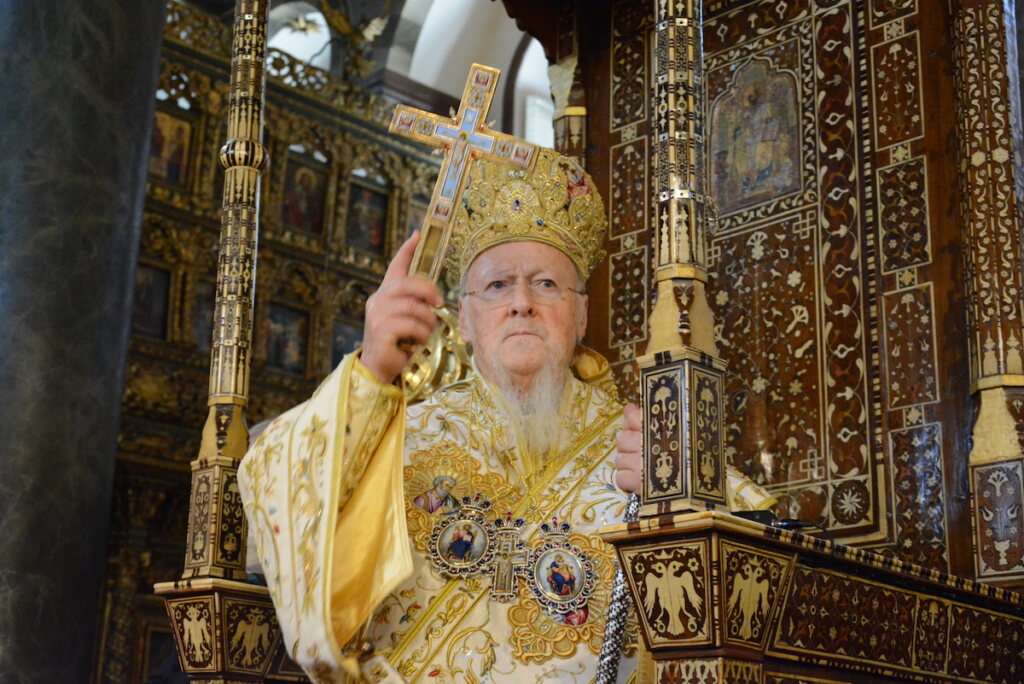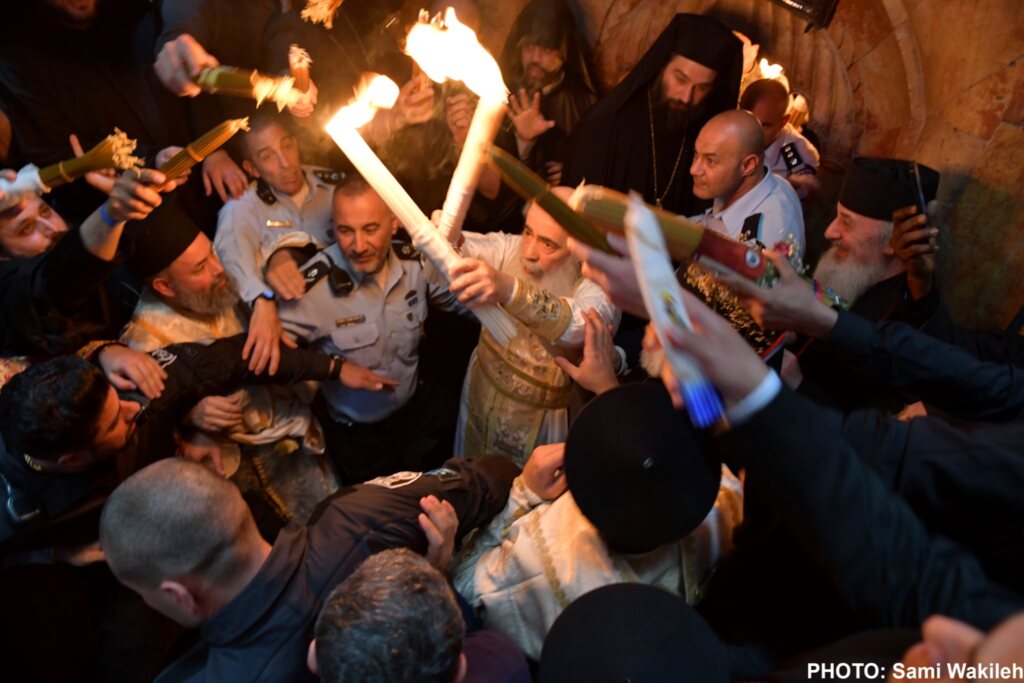The Holy Apostles of the Seventy: Olympas, Erastus, Rodion, Sosipater, Quartus and Tertius
They lived in the first century.
Saint Rodion, or Herodion (April 8), was a kinsman of the Apostle Paul (Romans 16:11), and left the bishop’s throne at Patras to go to Rome with the Apostle Peter. Saint Olympas was also a companion of the Apostle Peter. Saints Rodion and Olympas were beheaded on the very day and hour when Saint Peter was crucified.
Saint Olympas was mentioned by the holy Apostle Paul (Rom 16:15). He was also a companion of the Apostle Peter. He was beheaded on the very day and hour when Saint Peter was crucified.
The holy Apostles Sosipater (April 28), Erastus, Quartus and Tertius (October 30) were disciples of Saint Paul.
Saint Sosipater, a native of Achaia, was Bishop of Iconium, where also he died. Saint Paul mentions him in Romans 16:21.
The Apostle to the Gentiles speaks of Erastus and Quartus in the Epistle to the Romans, “And Erastus, the city treasurer, greets you, and Quartus, a brother” (Rom 16: 23).
Saint Quartus endured much suffering for his piety and converted many pagans to Christ, dying peacefully as a bishop in the city of Beirut.
Saint Tertius is mentioned in the Epistle to the Romans, “ I, Tertius, who wrote this epistle, salute you in the Lord” (Rom 16:22).
Saint Tertius, to whom Saint Paul dictated the Epistle to the Romans, was the second Bishop of Iconium, where also he died.
Troparion, tone 3:
Holy Apostles, Erastus, Olympas, Herodion, Sosipater, Quartus and Tertius, entreat the merciful God, to grant our souls forgiveness of transgressions.
Martyr Orestes the Physician of Cappadocia
He lived at the end of the third century in the city of Tyana in Cappadocia in the time of the emperor Diocletian (284-311). He was an illustrious and capable soldier, and from childhood Saint Orestes was truly a good Christian.
By order of the emperor, the military officer Maximinus was sent to Tyana to deal with Christianity, which then had spread widely throughout Cappadocia. Orestes was among the first brought to trial to Maximinus. He bravely and openly confessed his faith in the Crucified and Risen Lord, Jesus Christ. The prosecutor offered the saint riches, honors and renown to renounce God, but Saint Orestes was unyielding.
At the order of Maximinus, they took Orestes to a resplendant pagan temple and again demanded that he worship idols. When he refused, forty soldiers, took turns one after the other, beating the holy martyr with lashes, with rods, with rawhide, and then they tormented him with fire. Saint Orestes cried out to the Lord, “Establish with me a sign for good, let those who hate me see it and be put to shame (Ps. 85/86:17). “And the Lord heard His true servant. The earth began to tremble, and the idols fell down and were smashed. Everyone rushed out of the temple, and when Saint Orestes came out, the very temple tumbled down.
Infuriated, Maximinus ordered the holy martyr to be locked up in prison for seven days giving him neither food nor drink, and on the eighth day to continue with the torture. They hammered twenty nails into the martyr’s legs, and then tied him to a wild horse. Dragged over the stones, the holy martyr departed to the Lord in the year 304. His relics were thrown into the sea.
In 1685, when Saint Demetrius, later the Bishop of Rostov, (October 28) was preparing the Life of Saint Orestes to be printed by the Kiev Caves Lavra, he became tired and fell asleep. The holy martyr Orestes appeared to him in a dream.
He showed him the deep wound in his left side, his wounded and severed arms, and his legs which had been cut off. The holy martyr looked at Saint Demetrius and said, “You see, I suffered more torments for Christ than you have described.” The humble monk wondered whether this was Saint Orestes, one of the Five Martyrs of Sebaste (December 13). The martyr said, “I am not that Orestes, but he whose Life you have just finished writing.”
Troparion, tone 4:
Your holy martyr Orestes, O Lord, through his sufferings has received an incorruptible crown from You, our God. For having Your strength, he laid low his adversaries, and shattered the powerless boldness of demons. Through his intercessions, save our souls!
